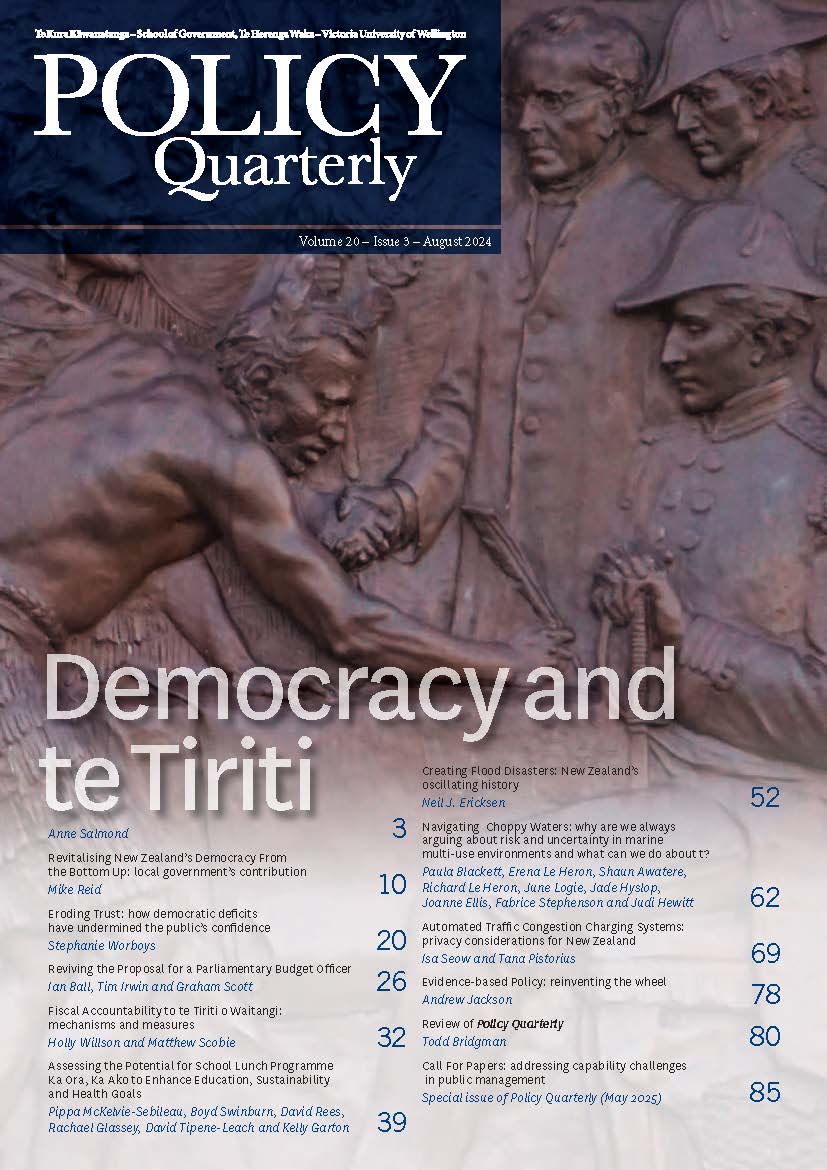Fiscal Accountability to te Tiriti o Waitangi
mechanisms and measures
DOI:
https://doi.org/10.26686/pq.v20i3.9555Keywords:
Constitutional transformation, Fiscal accountability, te Tiriti o Waitangi, Taxation, RangatiratangaAbstract
This article investigates possible models for strengthening fiscal accountability to te Tiriti o Waitangi. We utilise the spheres of influence framework set out by Matike Mai Aotearoa (2016), with a rangatiratanga sphere, a kāwanatanga sphere and a relational sphere. We outline tax-like practices in the rangatiratanga sphere and how the kāwanatanga sphere resources itself. We then explore expectations and protocols for accountability within the respective spheres, before proposing three possible models to strengthen fiscal accountability in line with te Tiriti o Waitangi. These models include a Māori tax commissioner, a Waitangi Tribunal kaupapa inquiry into or including fiscal authority, and an independent Māori tax authority.
Downloads
Downloads
Published
Issue
Section
License
Permission: In the interest of promoting debate and wider dissemination, the IGPS encourages use of all or part of the articles appearing in PQ, where there is no element of commercial gain. Appropriate acknowledgement of both author and source should be made in all cases. Please direct requests for permission to reprint articles from this publication to Policy-Quarterly@vuw.ac.nz.



